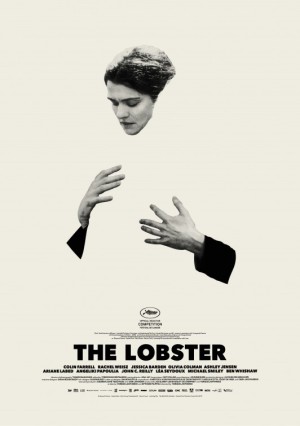VULTURE: The genius of The Lobster, the English-language debut of Greek writer-director Yorgos Lanthimos — whose 2009 wonder Dogtooth was the first Greek movie since 1977 to be nominated for an Academy Award for Best Foreign Language Film — is that it does not make the assumption that fuels every rom-com and love story known to man: that we can choose how we find love.
In the world of The Lobster, all single people are sent to a hotel for 45 days in order to find a mate. If they fail, they are turned into an animal of their choosing — “Which is why the world is filled with dogs,” a character says early on, one of many instances where you’ll laugh almost in spite of yourself. Lanthimos and co-writer Efthymis Filippou use allegory to expose our own bizarre preconceptions and rituals of courtship.
Much of this odd little movie’s appeal is attributable to the cast, which includes John C. Reilly, Ben Whishaw, Léa Seydoux, and Rachel Weisz, a series of acclaimed actors who play characters named Lisping Man, Limping Man, Loner Leader, and Short-Sighted Woman, respectively. The only actor whose character has a proper name — David, a hapless, recently dumped bachelor — is Colin Farrell. MORE
NEW YORKER: Timorous, paunchy, and pale, with a sad mustache and a pair of rimless  glasses, David (Colin Farrell) checks into a rural hotel. He expects to remain for forty-five days, and, like the other guests—all of whom, male and female, are unattached—he must use the time to procure a suitable mate. Anyone who flunks that task will suffer an unusual penalty. As the hotel manager (Olivia Colman) says to David, “The fact that you’ll turn into an animal if you fail to fall in love with someone during your stay here is not something that should upset you or get you down. Just think, as an animal you’ll have a second chance to find a companion.” She advises him that, if transfigured, he should limit his choice of sweetheart to the same species. “A wolf and a penguin could never live together, nor could a camel and a hippopotamus,” she says. After a moment, she adds, “That would be absurd.” As if everything else she has mentioned is utterly normal.
glasses, David (Colin Farrell) checks into a rural hotel. He expects to remain for forty-five days, and, like the other guests—all of whom, male and female, are unattached—he must use the time to procure a suitable mate. Anyone who flunks that task will suffer an unusual penalty. As the hotel manager (Olivia Colman) says to David, “The fact that you’ll turn into an animal if you fail to fall in love with someone during your stay here is not something that should upset you or get you down. Just think, as an animal you’ll have a second chance to find a companion.” She advises him that, if transfigured, he should limit his choice of sweetheart to the same species. “A wolf and a penguin could never live together, nor could a camel and a hippopotamus,” she says. After a moment, she adds, “That would be absurd.” As if everything else she has mentioned is utterly normal.
Only a film with a tenacious grasp of absurdity would allow such talk, and “The Lobster,” the first English-language feature by the Greek director Yorgos Lanthimos, fits the bill. Tranquil in manner yet brisk in momentum, it lays out the foreground of the story without pausing to fill in the backdrop; clue by clue, we have to work it out for ourselves. The underlying tenet of society, we come to understand, is that people are forbidden to be single. Parts of the film are set in a city, where we see that principle in action. A woman on her own in a mall is stopped by security guards, who demand, politely but firmly, to know the whereabouts of her husband; she explains that he is away on a business trip. Another solo shopper is asked to produce his “certificate,” in order to prove that he has a spouse. […]
“The Lobster” is more than a satire on the dating game. It digs deeper, needling at the status of our most tender emotions. Even when David and his fellow-myopic are revealed to be kindred spirits, that kinship affords them little joy. Not once do they seem happy, and I fear that Lanthimos regards romantic bliss, like domestic harmony, as yet another illusion to be pricked. Hence the stern voice-over supplied by Weisz, sounding like a school principal. Hence, too, the soundtrack—mostly jagged snatches of string music by Beethoven, Shostakovich, Schnittke, and others, scraping away any patches of contentment. One image, of four loners walking down a country road, clad in suits, recalls the similar strollers who crop up in Buñuel’s “Discreet Charm of the Bourgeoisie” (1972), yet Lanthimos lacks the master’s blithe awareness that, in the matter of tone, the savage can cohabit with the suave. Although few films this year will make the kind of impression that “The Lobster” does, it remains grim fare, spiky and unconsoling, and, where there are laughs, they die at the back of the throat. To anyone planning to see this movie on a date: good luck. MORE

